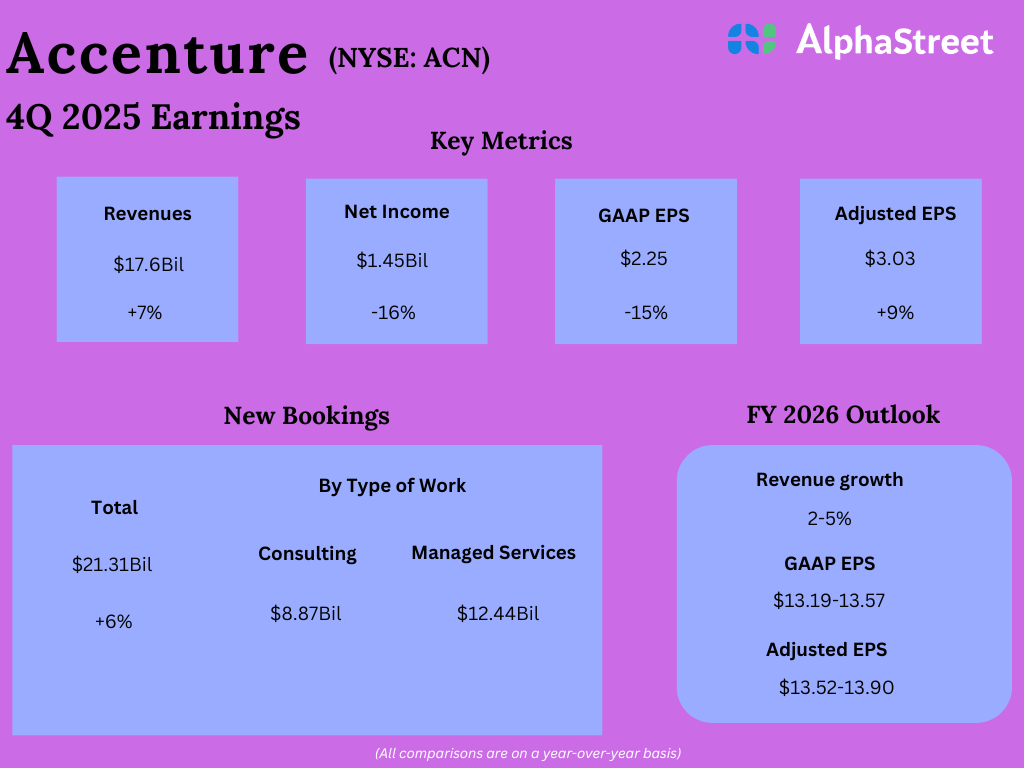12 minutes read
Updated Oct 2, 2025
Legal entrepreneurship, powered by technology, is essential for solo and small law firms to thrive in today’s client-centric landscape, offering significant advantages over traditional models.
Embrace innovation: Leverage technology and strategic thinking to deliver client-centric, accessible, and affordable legal services.
Boost efficiency and client satisfaction: Utilize legal tech tools for case management, billing, marketing, document automation, and AI-powered tasks.
Address challenges proactively: Overcome common obstacles like attracting clients, balancing work, and navigating compliance with tech-driven solutions.
Drive growth and profitability: Shift to value-based pricing, implement leaner staffing, and enhance your digital presence for increased revenue and client loyalty.
Client-focused, digitized services have become the norm across all industries, and law is no exception. Tech-enabled legal services and communication are now a standard expectation for clients, and legal entrepreneurs are seizing this opportunity to provide more value and stand out from the competition.
But what does this mean for law firms with more traditional structures, and how can entrepreneurial firms maximize their tech investment and handle the increasing demand for legal services with ease? Learn how being an entrepreneur and legal innovation can fuse together to prepare your firm for the future.
What is a legal entrepreneur?
A legal entrepreneur uses technology, strategy, and creative thinking to innovate and deliver more client-centric legal services that prioritize client satisfaction, affordability, and accessibility. Legal entrepreneurs excel at small law firm marketing and are comfortable taking risks, challenging the status quo, and revolutionizing how legal services are delivered.
Why is legal entrepreneurship important?
Legal entrepreneurs address deep-seated issues that affect clients’ access to legal services and firm success. With the support of technology, entrepreneurs are advancing the legal landscape and gaining a competitive advantage against traditional firms.
Set your firm ahead with the right legal tech. Discover how Clio can support a more efficient and client-centric practice. Schedule a free demo.
The evolution of legal practice models
With the global financial crisis, growth of big data and AI, and increased tech adoption have shifted the legal industry and client expectations. A surge in entrepreneurs, legal innovation, and tech startups are revolutionizing the landscape, delivering more valuable, and cost-effective services to clients.
While traditional firms are still the norm, their structure and operations often rely on precedent and can be a hindrance to innovation. In comparison, entrepreneurial law firms prioritize accessibility, equity, and efficiency, leveraging technology to improve their legal services and client experience.
The future of legal business structures
According to the American Bar Association, clients are outpacing lawyers with tech adoption, choosing apps and other tools over legal counsel to reduce costs. To stay competitive, law firms need to place a greater emphasis on innovation, AI, and tech adoption. This includes fostering more agile and entrepreneurial thinking, and data-driven solutions.
Leveraging technology for legal entrepreneurs
Technology is a key part of providing better value for your firm, and your clients. It reduces operational and legal service costs and, according to our Legal Trends Report, secures you more business, as affordability has been a primary factor for clients when hiring a lawyer. Plus, nearly half of clients prefer to work with law firms that use AI because of its added efficiencies. The American Bar Association also notes that legal technology makes personalized client interactions easier, which helps foster trust and strengthens client relationships.
20 top tech tools for legal entrepreneurs
Whether you’re a fledgling private law practice or a more established one, building your own legal tech stack can be complex, especially when you’re unsure which tools are worth the investment. Based on your needs, some may be a better fit than others. To help you get started, here are the top tools for legal entrepreneurs.
Case management
Practice and case management tools boost your overall efficiency and support your firm’s success with features and integrations that create a more client-centric practice.

Clio Manage is the industry’s leading case management software, used to organize cases, improve client communication, and add ease to calendars and billing. It also brings client and case management to the next level with intuitive AI-powered automations. With Clio Manage, you not only get precise management and collaboration tools for your team and clients, including client portals, but also the ability to leverage firm insights that make data-driven decisions easy.
With Clio, you also enjoy a large integration library to connect your entire tech stack in one centralized platform.
Billing and payments
Take the stress out of law firm billing and payments and get your time back. These tools help boost your productivity, get paid faster, and even offer reporting to provide full visibility of your finances.

Clio Payments speeds up your collections with convenient payment methods your clients can access from anywhere. Enjoy automated payment records and assured legal compliance (PCI and trust accounting) that makes this part of your day-to-day a lot smoother.

AltFee is legal pricing and fixed fee management software that integrates with Clio to support pricing for matters with features to navigate a value-based approach, service descriptions, and more.
Learn how Temple Law PLLC uses Clio Payments and AltFee to offer alternative fees (such as subscription pricing) to their clients here: Why I Moved to Flat Legal Fees.
Marketing and client intake
Use these legal marketing tools to attract new leads, build stronger client relationships, and simplify intake. With features designed for marketing small law firms, you’ll have what you need to grow your practice with confidence.

Clio Grow improves your legal practice with marketing features and client intake automation that together attract, nurture, and win clients. You’ll also gain insights from your campaigns that help you refine and enhance your client experience. Here are some of the key features:
Legal client intake. Add ease and speed to your client intake with secure tools that organize new client information and make filtering through potential clients more focused.
Google’s Local Services Ads. Support your firm’s growth with Google’s Local Services Ads that make the most of your budget while attracting higher quality leads near you.
Email marketing. Drive better results with an email marketing tool that makes targeting your ideal clients simple and easy. Includes pre-built legal campaign templates, segmentation, and reporting.

Scorpion integrates with Clio Grow and Clio Manage to provide AI-powered marketing solutions that make the most of your budget. Get visibility into campaign performance, streamline client intake, and uncover insights that help you continually improve your client experience. Learn more about Scorpion + Clio’s partnership.
Document generation and automation
Maximize your time and customize your legal drafting with automation software that makes document generation easy.

Clio Draft integrates with Word and automates document generation using your Clio input data to create dynamic templates equipped with intelligent conditional logic. Save time and make fewer errors with Clio Draft, so your mental energy can be used towards client relationships and winning cases.
Client questionnaires in Clio Draft help you automatically gather key client information. It boosts your clients experience, adds trust and value, and supports faster legal document generation.
E-signatures in Clio Draft make it simple to securely send, sign, and finalize documents online, helping you reduce delays and keep matters moving forward.
Legal AI
Lower your costs and free up time with legal AI tools that streamline routine tasks, giving you more space to focus on your clients and firm growth.

Clio Duo automates repetitive tasks by leveraging legal AI for small firms. It’s an ideal AI partner that makes your work smarter and faster. With inherent legal compliance, Clio Duo’s features include streamlined daily workflows, document and matter summarization, task creation, client communication, and more. Plus, rest easy knowing your legal data is always kept secure and private.

Vincent AI, from vLex, is your legal research and workflow assistant. It helps you prepare cases faster with tools for contract review, document automation, and precise legal research. Powered by the world’s largest collection of primary law and supported by the Cert citator, Vincent AI gives you reliable insights you can trust.
Accounting and financial reporting
As a legal entrepreneur, you’re responsible for a lot of your firm’s general operations, including accounting and financial reporting. These tools help make the management of your accounts and transactions a lot easier.

Clio Accounting simplifies accounting for entrepreneurial law firms, with it’s all-in-one, easy-to-use platform. Built specifically for legal professionals, Clio Accounting takes the intimidation out of your accounting with automated financial management, assured industry compliance, and data-driven insights.
Financial reporting in Clio Accounting helps you get insights into your firms financial health, manage client funds, and evaluate your financial performance. Enjoy reporting that helps you identify new strategies to boost your revenue.

QuickBooks integrates with Clio to reduce errors in your accounting with automations that save you time. QuickBooks automatically syncs information to your ledgers for contacts, bills, payments, trust, and transactions.
Legal research
Get easier access to the information you need. These tools add accuracy and speed to your legal research to improve the overall quality of your cases.

vLex is an AI-powered legal research platform with one of the world’s most extensive collections of primary legal documents. It offers advanced search, analysis, and research tools to help legal professionals work more efficiently. Learn more about Clio aquiring vLex here.

Fastcase is available as an integration with Clio and gives your entrepreneurial firm remote access to the research material you need, while logging your hours and providing convenient data downloads of federal and state case law.

Logikcull integrates with Clio and automates discovery for matters so you can maximize your billable hours. Accompanied with pay-as-you-go or subscription pricing, this tool gives you added flexibility and time back.
Custom reporting and data-driven decision-making
Make every decision count. Enjoy customized reporting and comprehensive data that give you insights into your firm (a data-driven firm, is a strong firm!).

Clio Manage Custom Reports
Discover advanced reporting that adds clarity and confidence to your decision-making, with reports that provide visibility into how you can drive demand for your legal services, boost revenue, and improve your firm’s overall performance.
Ready to start your firm’s legal tech adoption? Here’s the no-fail process for improving your law firm with technology.
The ripple effect of entrepreneurial thinking in law firms

As legal technology continues to change client behaviour and expectations, the legal industry is embracing a more entrepreneurial approach in its operations, strategy, and structure. Here are the key impacts that are revolutionizing the legal profession today:
Shift from billable hours to value-based pricing
Value-based pricing brings benefits to both clients and lawyers. Law firms can prioritize client satisfaction and results over hours, while providing better price transparency for clients. This supports long-term firm success through better client relationships, increased trust and improved communication. Plus, lawyers offering flat fees are almost twice as likely to collect immediate payments over those who bill hourly.
Leaner staffing models and alternative legal service providers (ALSPs)
To attract clients and expand their range of services, law firms are leveraging leaner staffing models and ALSPs to outsource specific tasks such as document review and contract management. Legal professionals are seeing improved overall efficiency and accuracy, and are able to better-serve their clients and establish a unique reputation for their expertise.
Client-centric focus, stronger marketing/digital presence
More firms are investing in client management tools with marketing functionality, like Clio Grow, to appeal to clients and build a sustainable pipeline for revenue. Our Legal Trends Report found that lawyers that use client-facing capabilities see a 51% increase in leads and 52% higher revenues. Accompanied by the right technology, lawyers are using marketing strategies to build more client-centred law firms that attract clients, and elevate client experience and loyalty.
Niche specialization and scalability
Niche specialization helps legal entrepreneurs compete with bigger firms with wider service offerings. It improves marketing and branding, efficiency, and reputation, which contribute to growth and better revenue. Niche specialization also increases client memorability and value through tailored expertise.
Sign Up & Get the Latest Legal Trends Report First
Be the first to get the latest Legal Trends Report with insights on how top law firms use AI and technology to grow. Sign up to have it delivered right to your inbox.
Sign up now

7 Common obstacles faced by legal entrepreneurs
Legal entrepreneurship comes with its own growing pains. Here are some of the most common challenges, alongside solutions you can adopt now.
1. Attracting and retaining clients
A lack of brand awareness, value, and visibility can make it difficult for entrepreneurial firms to establish and retain their client base.
Solution: Focus on strategic, client-focused law firm marketing. Understand your ideal client and the channels they frequent, and use data to iterate and improve your campaigns.
2. Balancing legal work with business management
Like many small businesses, legal entrepreneurship requires the management of several aspects of your firm beyond your cases and clients, which can eat up your time, resources, and money.
Solution: Consider investing in legal workflow automation software that can handle your repetitive tasks and routines, so you can prioritize your clients and more strategic case work.
3. Navigating compliance, risk, and regulatory hurdles
As a legal entrepreneur, you need to keep abreast of regulations for authorized practices, ethical rules, advertising restrictions, and more. While mitigating risks and understanding legal compliance requirements and regulations is key to your success, it can be a huge task to add to your plate, especially with ongoing regulatory changes.
Solution: Create strong compliance policies and procedures, conduct regular audits, train staff, and use practice management software with integrated legal compliance.
4. Scaling without burning out
According to the American Bar Association, lawyers consistently report high rates of burnout. Legal entrepreneurs are responsible for more areas of their practice than traditional lawyers, and their time invested in business growth can mean taking on more tasks, which can cause stress to compound further.
Solution: Evaluate your workflow and all aspects of your practice to identify areas that can be automated or simplified (such as document review) with the right support or training.
5. Securing consistent cash flow
You may face a lag in payment due to time and resource restrictions, client delays, or poor billing and payment systems that add friction to the process. Solution: Payment processing software can streamline bill creation and payment and simplify trust-related transactions, so you get paid faster.
6. Adopting the right technology
Developing your legal tech stack can be daunting, especially with leaner budgets that stress the importance of return on your investment.
Solution: Research the top tech tools for lawyers and based on your needs and budget, select your top contenders. Take advantage of demos and free trials where possible.
7. Change management within conservative firms
More conservative firms may favour stability over innovation. Adopting a more entrepreneurial mindset that incorporates technology requires significant buy-in and there may be a longer adoption curve for legal-specific software.
Solution: Take advantage of resources like the Legal Trends Report to access key metrics on the impact of AI and tech adoption on law firm revenue and success. You can use this information to build a strong case for tech adoption at your firm.
Moving forward with tech-powered entrepreneurship
As tech levels the playing field, legal entrepreneurship is no longer optional for law firms, as client expectations push lawyers to reconsider traditional structures, processes, and precedents.
For practices that want to generate growth and ensure their success for the future, integrating legal tech is a must.
Ready to adopt a more entrepreneurial mindset? Explore Clio’s resources for legal innovators here.
Take the guesswork out of your tech investment with features that modernize your firm and maximize your ROI. Book a Clio demo today:
Book a Clio demo
What skills do legal entrepreneurs need?
Legal entrepreneurs require skills like creativity, flexibility, tech and data literacy, strategic thinking and problem solving, regulatory knowledge, and business and financial acumen.
What are examples of legal entrepreneurship?
Examples of legal entrepreneurship include pro bono and low-cost services, interdisciplinary businesses across marketing, tech, and finance, and legal startups.
What are the benefits of being a legal entrepreneur?
The benefits of legal entrepreneurship include competitive advantage; client satisfaction; efficiency and flexibility; adaptability; and financial gains from a more customer-focused service.
Loading …



























